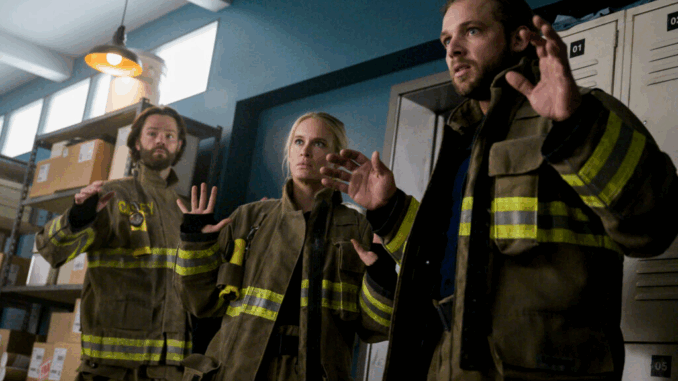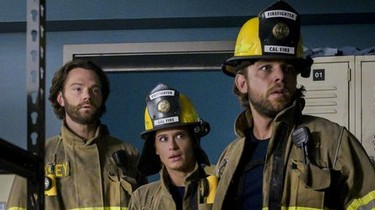
What Happens When the Fire Goes Out?
Since its explosive debut, Fire Country has been known for its thrilling, high-stakes wildfire sequences—smoke, sirens, and split-second decisions. But for all its heat, the show’s true strength has always been in its emotional core. That’s why producers are reportedly planning something bold for Season 4: an entire episode with no fires at all.
No rescues. No emergencies. No action. Just characters, consequences, and conversation.
This unexpected creative choice has the potential to be the show’s most daring—and most important—episode to date.
A Breather or a Breakthrough?
Fans used to the rhythm of high-octane episodes might view a “quiet” episode as filler. But showrunner Tia Napolitano says it’s quite the opposite:
“Sometimes the biggest fires happen inside us. This episode will burn, just differently.”
The episode, reportedly titled “The Ashes After”, takes place over 24 hours at Station 42 following a particularly devastating fire in a previous arc. Everyone has survived physically—but emotionally, they’re fractured.
Character-Driven Confessionals

This fire-free episode offers an unprecedented opportunity to go deep into the psychological aftermath of trauma. Here’s what we can expect:
-
Bode finally opens up about guilt—not just over Vince’s death, but over every life he couldn’t save.
-
Eve breaks down after holding it together for too long, questioning her ability to lead.
-
Sharon quietly confides in a new therapist, revealing regrets she’s never said aloud.
-
Manny visits the gravesite of a fallen trainee, leaving behind his badge in silence.
There’s no dramatic rescue. No screaming radios. Just voices. Memories. And the long-overdue stillness that forces characters to face what they usually run from.
A Love Letter to the Ensemble Cast
With no fire scenes or explosions to steal focus, this episode becomes a showcase for the actors. From Thieriot’s vulnerability to Farr’s subtle grief to Latimer’s controlled emotional unraveling—each performance will have space to breathe.
This structure also gives space to side characters, like Jake, Cole, and new additions from Season 4, each granted scenes that deepen their inner worlds.
Therapy as Storytelling
Perhaps the most surprising inclusion? A group counseling scene—mandated by Cal Fire after the traumatic event. Though initially met with sarcasm and resistance, it evolves into one of the show’s most powerful moments.
-
One character admits they no longer feel anything.
-
Another confesses a failed suicide attempt years ago during wildfire season.
-
A third reveals a secret kept for over a decade.
These revelations are not plot devices—they are transformative truths, shaped by fire but told in its absence.
A Necessary Evolution for the Series
Network dramas often stick to a formula: action, resolution, cliffhanger. But Fire Country has always dared to be more. By airing a fire-free episode, it signals a maturity—one that prioritizes emotional realism over spectacle.
If successful, this episode could redefine what fans expect from the show and cement its place as not just a procedural, but a true emotional drama with staying power.
Conclusion: Still Burning, Just Quieter
In a series built on chaos, sometimes the quietest moments are the loudest. With this groundbreaking episode, Fire Country dares to ask:
What if the bravest thing a firefighter can do is feel?
And in that stillness, fans may discover that the real fire isn’t in the forest—it’s in the heart.
